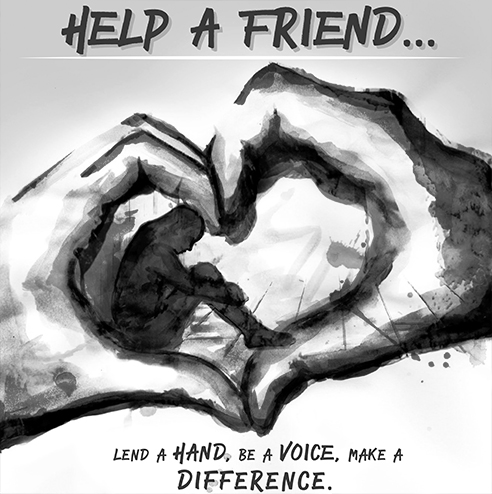
Campus Crime Stoppers allows students to report crimes anonymously to school administration and law enforcement. If a tip helps solve a crime, the student may receive a cash reward between $10 and $1,000.
This program fosters school spirit, pride, and responsibility, giving students the power to take action against crime in their schools.


The Friends for Life program, developed in partnership with Fort Worth ISD’s “It’s Not Okay” campaign, encourages students to make healthy choices and seek help when they or their friends are in danger.
Students can report concerns anonymously about:
✅ Bullying & Cyberbullying
✅ Sexting
✅ Dating or Family Violence
✅ Gang Activity
✅ Sexual Harassment
✅ Self-Harm & Suicidal Thoughts
This safe and confidential resource ensures that students can report issues affecting their well-being and the safety of their peers.
The Gun & Gang Busters program, created in partnership with Project Safe Neighborhoods, is designed to combat gun and gang-related crime in Tarrant County.
Bonus Rewards for Gun & Gang-Related Tips
In addition to standard Crime Stoppers rewards, tipsters may receive a bonus reward of up to $250 for information leading to an arrest in gun- or gang-related crimes.
What Types of Tips Qualify?
✅ The seizure of a gun
✅ Crimes committed with a firear
✅ Gang-related criminal activity
✅ Drug offenses involving gang members
✅ Gang graffiti and vandalis
✅ Gang recruitment or coercion
How Are Bonus Rewards Determined?
Rewards range from $50 to $250, based on the severity of the crime and are approved by the Crime Stoppers of Tarrant County Standing Committee


The College & University Crime Stoppers program allows students and staff to report criminal activity anonymously, whether it happens on or off campus. Tips that lead to an arrest may qualify for a monetary reward.
This program covers crimes such as:
✅ Drug Offenses
✅ Theft & Vehicle Burglaries
✅ Assaults & Sexual Assaults
✅ Vandalism
✅ Potential School Shootings
It also includes Friends for Life tips, helping students report concerns about bullying, harassment, dating violence, gang activity, self-harm, and other safety threats.
By submitting a tip, you help protect your community while staying completely anonymous. If your information leads to an arrest, you may be eligible for a cash reward. Your voice matters. Speak up. Stay safe. Stop crime before it happens.